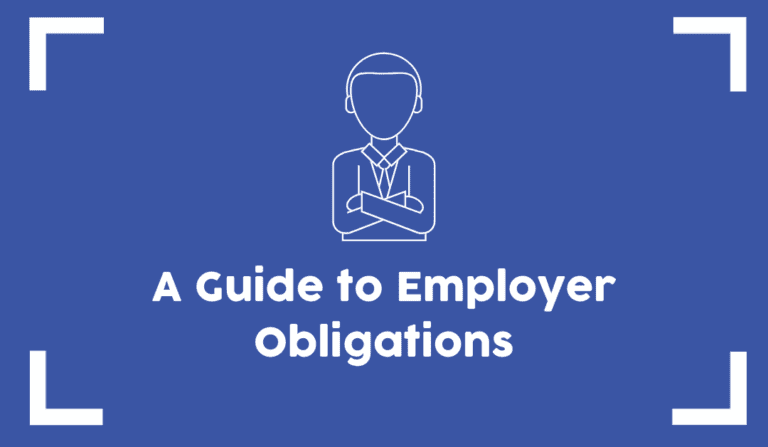
Understanding Employer Obligations: A Guide for New Employers
Estimated reading time: 6 minutes
Key Takeaways
- Employer obligations ensure fair treatment of employees and a level playing field for businesses.
- Understanding PAYG, super, and STP is critical for compliance.
- Effective employee onboarding fosters a productive and compliant workplace.
Table of Contents
Overview of Employer Obligations
Employer obligations encompass all legal and ethical responsibilities new employers have towards their employees under the Fair Work Act and other relevant Australian legislation. These obligations are crucial for ensuring fair treatment and a level playing field for businesses.
Understanding and meeting these obligations is vital for avoiding penalties and creating a positive workplace where employees feel valued and protected. Compliance significantly contributes to employee satisfaction, retention, and overall business success.
Key Components of Employer Obligations
PAYG (Pay As You Go) Withholding
PAYG (Pay As You Go) Withholding is a tax collection system where employers withhold a portion of employee payments and remit it to the Australian Taxation Office (ATO). This helps employees manage their tax obligations throughout the year.
As a new employer, you must:
- Register for PAYG withholding with the ATO when you start employing staff.
- Collect tax file declaration forms from each new employee.
- Calculate and withhold tax from payments according to ATO guidelines.
- Report and pay withheld amounts to the ATO regularly (usually monthly or quarterly).
- Provide payment summaries to employees at the end of the financial year.
Proper PAYG management ensures compliance and efficient tax obligations for your business and employees.
Superannuation Requirements
All Australian employers must make superannuation (super) contributions for eligible employees. Understanding your obligations is essential for compliance and supporting your employees’ retirement savings.
Key elements of employer super obligations include:
- Superannuation Guarantee (SG): Employers must contribute 11% of an employee’s ordinary time earnings to their super fund.
- Eligibility: You must pay super for employees over 18 years who earn more than $450 per month.
- Payment schedule: Super contributions must be paid quarterly.
- Choice of fund: Most employees can choose their super fund.
Penalties for missed or late super payments are significant. Consider professional BAS agent services: here.
Single Touch Payroll (STP)
STP is a digital system that streamlines employer payroll obligations by automating tax and super contributions reporting to the ATO.
For new employers, implementing STP involves:
- Choosing STP-enabled payroll software.
- Setting up your payroll system and reporting each payroll cycle.
STP integrates with PAYG and super obligations, reducing administrative burden. For help avoiding STP reporting errors, see this guide: STP Guide.
Onboarding New Employees
Effective onboarding is crucial for compliance and business success. A positive onboarding experience sets the tone for employee engagement.
Legal Requirements During Onboarding
- Provide essential information: Fair Work Information Statement (FWIS).
- Collect necessary documentation: Tax file number declaration, Superannuation choice form, etc.
Many employers use an onboarding checklist. Review your overall tax responsibilities when hiring: Tax Requirements.
Reporting Requirements for PAYG, STP, and Super
Meeting reporting deadlines is critical for fulfilling your STP, PAYG, and super obligations. Understanding these requirements helps avoid penalties and ensures smooth compliance.
For more on BAS lodgment, see this BAS reporting guide.
Frequently Asked Questions
Q: What are employer obligations?
A: Employer obligations are legal requirements businesses must meet for fair employee treatment and legal compliance.
Q: How often must superannuation contributions be made?
A: Super contributions must be paid at least quarterly.
Q: Is single touch payroll mandatory for all employers?
A: Yes, STP is mandatory for all Australian employers.